Corpus Christi Blog
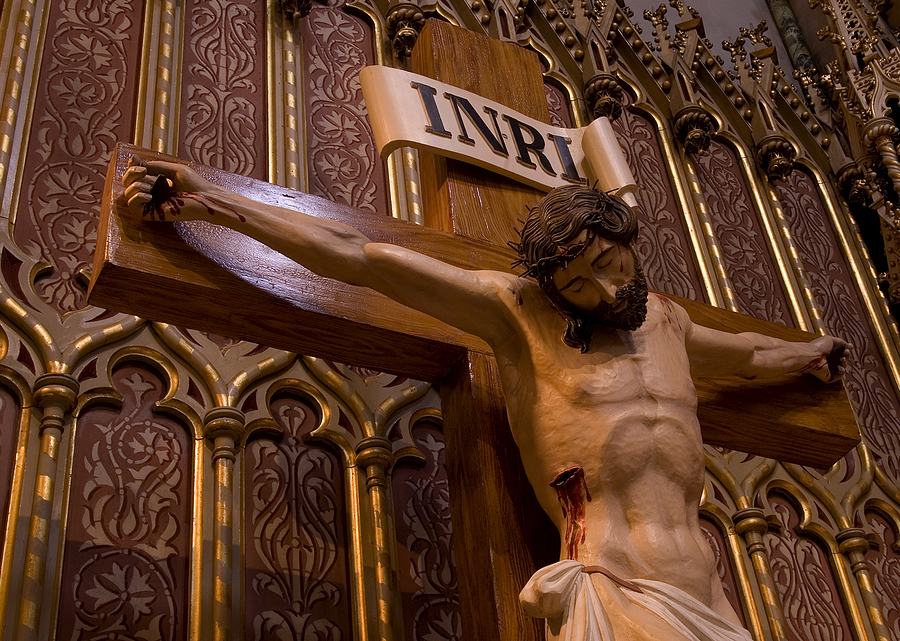
The Vertical and Horizontal Beams
03-28-2020Weekly ReflectionJen Arnold, M.A. in Theology and CatecheticsThere is no doubt that the cross is the most recognized symbol of Christianity. It symbolizes what our Lord endured for us, what we carry, and our hope for salvation. There is so much meaning wrapped up in this one symbol of our faith. Today, we will take a closer look at one specific aspect of the symbolism of the cross as it relates to our life and our faith.
Not by coincidence, the cross is made up of two beams of wood – one vertical and one horizontal. The vertical beam symbolizes your relationship with God while the horizontal beam represents your relationship with others. You need both to form a cross. You need both to be Christian.
READ MORE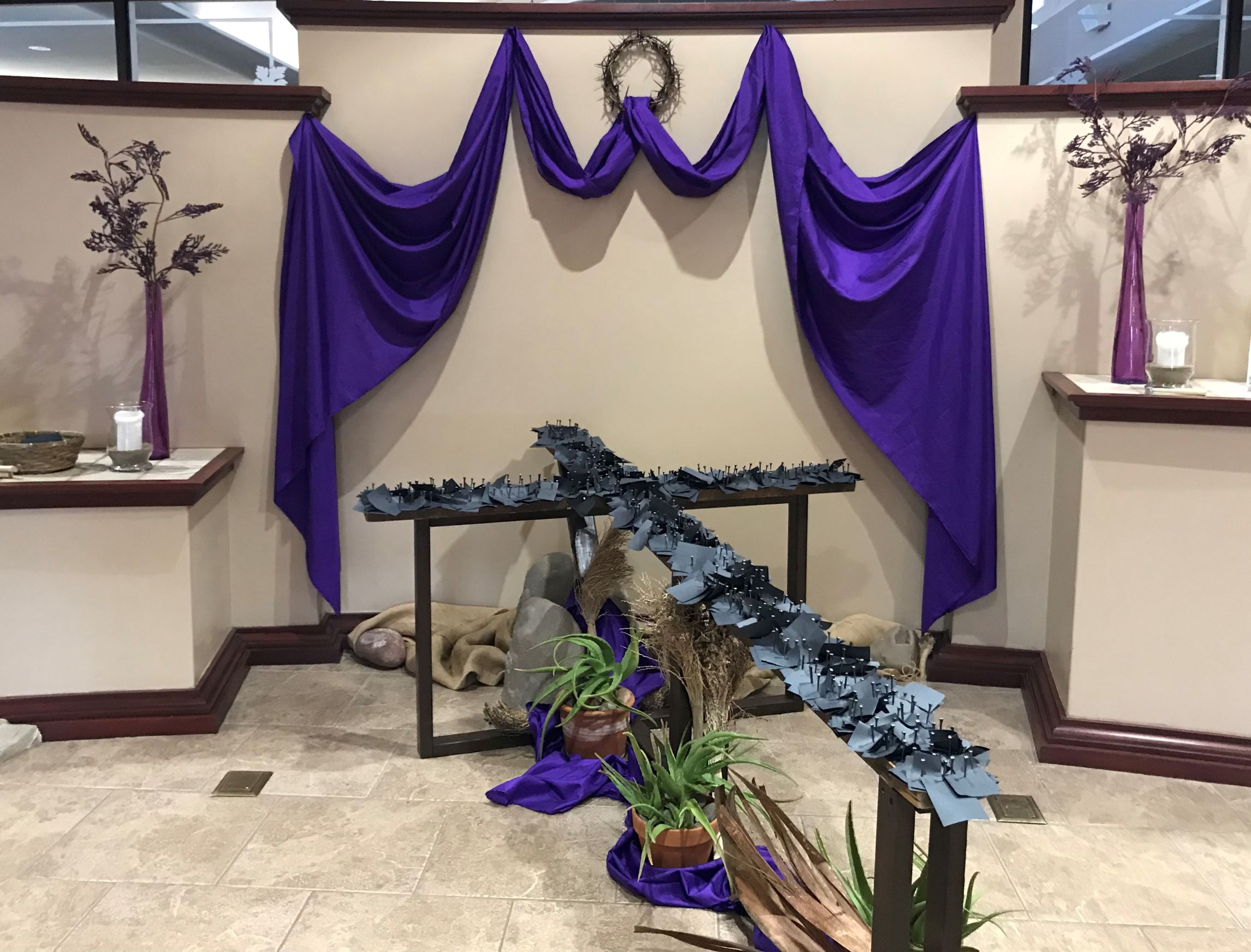
The Cross: How Our Sins Crucify Christ
03-22-2020Weekly ReflectionJen Arnold, M.A. in Theology and CatecheticsLast week we covered how when we go to the foot of the cross, we are present at the actual sacrifice Jesus made for us. Another way we are present and participating is by crucifying Him ourselves through our acts of sin. This is a tough one to swallow, but the cross is actually where we personally continue to participate in the crucifixion of Jesus every single day.
Paragraph #598 of the Catechism of the Catholic Church has a rather dense explanation of this truth, which I will attempt to unpack here. First, the Catechism says that this teaching is supported by our Tradition which has been handed down by all the Christians who have come before us. The very first Christians recognized that “sinners were the authors and the ministers of all the sufferings that the divine Redeemer endured” and that it was not merely an act of the Jews who were condemning him or the Roman soldiers who were carrying it out. In other words, this is not an invented form of “Catholic guilt,” but an understanding of the reality of what the crucifixion actually meant, from the earliest followers of Christ. That understanding was then passed down through the generations to us in the Church.
READ MORE
The Cross: Standing at the Foot of It
03-15-2020Weekly ReflectionJen Arnold, M.A. in Theology and CatecheticsThis week we will reflect on what took place at the foot of the cross and how we participate in it still today.
The gospel of John tells us who was at the foot of the cross when Jesus was crucified: “Standing by the cross of Jesus were his mother and his mother’s sister, Mary the wife of Clopas, and Mary Magdala.” (Jn 19:25). Of course, John was also present as this was when he was entrusted with Jesus’ mother, Mary (Jn 19:27). As you can see, there were not very many people there. Jesus had many friends and followers who followed him around in crowds numbering in the thousands, forcing him to perform miracles just to feed them. He had 12 dedicated Apostles as his closest friends, yet only one remained at the foot of the cross. Here Jesus was, at the apex of his suffering out of love for us, and he was abandoned by all but a few people. This fact is not unlike what is going on today around us. Many Christians today claim to love Jesus, but how far are they really willing to go for Him? To be standing at the foot of a cross where a man is suffering and dying is not a comfortable place to be and many are not willing to be that uncomfortable.
The second thing that is important to notice in the scene at the foot of the cross is that Mary, His mother, is standing. She is not sittng or flailing about, she is standing. There is no doubt that Mary’s suffering was second only to Jesus’. Simeon had prophesied to her that a sword would pierce her heart (Lk 2:35) and that moment had finally come. Yet, she handles her suffering with dignity and conviction, standing before her crucified Son. Her strength and perseverance in the midst of such horrendous suffering serves as our example in our own suffering. Of course, in our fallen nature, we so often fall to the ground or flail about under the weight of our suffering, but we should al- ways strive to follow Mary’s suffering. The next time we feel tempted to collapse, we can ask ourselves if our suffering matches the suffering of Jesus or Mary and when we see that it does not, we can ask for her strength and stand strong under the weight of it.
READ MORE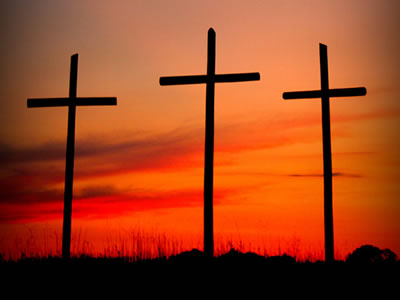
The Cross: The One We Help Others Carry
03-08-2020Weekly ReflectionJen Arnold, M.A. in Theology and Catechetics“As they led him away they took hold of a certain Simon, a Cyrenian, who
was coming in from the country; and after laying the cross on him, they made him carry it behind Jesus.” (Lk 23:26).
This week we will reflect on the cross as that burden which we help others carry. Jesus did not carry His cross alone. He was battered and beaten and the cross was heavy. In His humanity, it simply became too much for Him and it became apparent that He wasn’t going to make it if left to His own strength. A bystander who had nothing to do with the situation, but was strong and healthy, was called in to help. By all accounts, Simon of Cyrene was compelled by the Roman soldiers to carry the cross, but it is hard to imagine that after seeing Jesus suffering so much, he wasn’t moved with pity and compassion.
Last week we discussed how in bearing our own crosses, we cooperate with Jesus in His redemptive work. In a very literal and physical way, Simon assisted Jesus in His redemptive work in the Passion. Jesus was doing the hard work, but Simon helped Him. At the time Simon carried the cross, he had no idea the good that would come about at the end of this terrible event. He could not see the big picture – the eternal picture. Of course, divine providence knew how it would all unfold, and Simon was placed in exactly the right place at the right time. This wasn’t an accident. Everything that happens in Scripture is intentional and has meaning for us. Simon of Cyrene shows us how we are called to help others carry their crosses in the spirit of sincere charity because all of it is redemptive for the Body of Christ.
READ MORE
The Cross: The One We Carry and Will Die Upon
03-02-2020Weekly ReflectionJen Arnold, M.A. in Theology and CatecheticsThis Lent, we will progress through a six-week series of reflections on the cross and its various roles and purposes in our lives. We will begin with a reflection on the cross as something we ourselves carry and ultimately, die upon.
Jesus, the Son of God made man, came into this world in flesh to restore humanity from the damage caused by sin. The humanity of Jesus plays a significant role for our salvation. He became like us, lived like us, and suffered like us, so that we might imitate Him in all things. Through His Passion and crucifixion, we learn much about how to carry our own crosses and die upon them as well.
READ MORE
A Testimony of Healing
02-23-2020Weekly ReflectionAnonymous ParishionerDear Father Chad King,
Some time ago, it was actually Mercy Sunday, I went to Confession with you and shared my Lenten journey. You recognized the work of God in my life and asked if I would be willing to share my story. (I thought who or what group at Corpus Christi would I be talking to?) But you said, “Could you write two pages that I could have in our bulletin? I believe many people would benefit from hearing your story.”
Because I knew it was God working in my life, I agreed. We never discussed a timeline, but I had no idea that it would take this long to get the job done!
I realize now why I was not able to write this letter sooner. You are asking me to reveal a family secret. Even though you had told me that I could be anonymous, somehow, I couldn’t trust that the “secret” be known.
READ MORE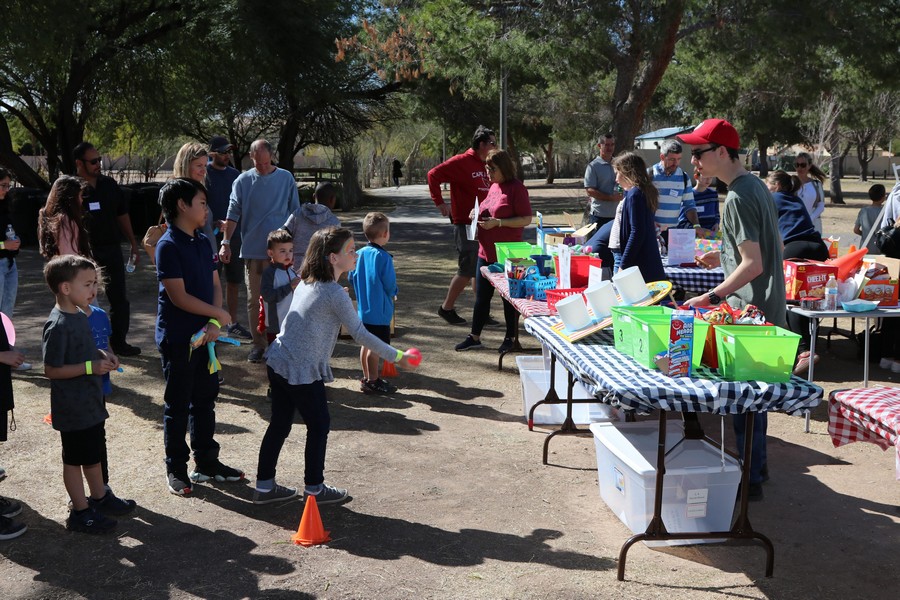
Corpus Christi Parish Picnic
02-16-2020Weekly ReflectionFr. Chad KingThank you to everyone who helped make our 2020 Parish Picnic a huge success! I would especially like to recognize the following people for all their hard work!!
READ MORECharity & Development Appeal 2020
02-09-2020Weekly ReflectionLearn more at dphx.org/cda.

What is Candlemas day?
02-02-2020Weekly ReflectionFr. William P. SaundersCandlemas Day is another name for the feast of the Presentation of the Lord. Forty days after His birth, Mary and Joseph brought Jesus to the temple for the rites of purification and dedication as prescribed by the Torah. According to the Book of Leviticus (12:1-4), when a woman bore a male child, she was considered “unclean” for seven days. On the eighth day, the boy was circumcised. The mother continued to stay at home for 33 days for her blood to be purified. After the 40 days, the mother and the father came to the temple for the rite of purification, which included the offering of a sacrifice — a lamb for a holocaust (burnt offering) and a pigeon or turtledove for a sin offering, or for a poor couple who could not afford a lamb, two pigeons or two turtledoves. Note Joseph and Mary made the offering of the poor (Lk 2:24).
Also, Joseph and Mary were obliged by the Torah to “redeem” their firstborn son: “The Lord spoke to Moses and said, ‘Consecrate to me every first-born that opens the womb among the Israelites, both of man and beast, for it belongs to me’” (Ex 13:1). The price for such a redemption was five shekels, which the parents paid to the priest. This “redemption” was a kind of payment for the Passover sacrifice, by which the Jews had been freed from slavery.
However, St. Luke in the Gospel does not mention this redemption, but rather the presentation of Our Lord: “When the day came to purify them according to the law of Moses, the couple brought Him up to Jerusalem, so that He could be presented to the Lord, for it is written in the law of the Lord, ‘Every firstborn male shall be consecrated to the Lord’” (Lk 2:22-23). So the focus is on Jesus’ consecration to God. The verb “to present” (paristanai) also means to “offer,” which evokes Jesus is presented as the priest who will offer Himself as the perfect sacrifice to free us from the slavery of sin, seal the new and eternal covenant with His blood, and open the gates to the true promised land of heaven.
READ MORE
Word of God (Part 2)
01-26-2020Weekly ReflectionJen Arnold, M.A. in Theology and CatecheticsToday is the 3rd Sunday of Ordinary Time and the first official Sunday of the Word of God. Today we’ll take a closer look at the second half of Pope Francis’ Apostolic Letter Aperuit Illis.
We ended last week with Jesus interpreting Scripture for His disciples on the Road to Emmaus. In paragraph 8 of his document, the pope continues with what occurred at the end of the story and what it means with regard to the Word of God. The scene ends with Jesus being invited to stay for a meal (Lk 24-29). When Jesus broke the bread, their “eyes were opened and they recognized Him,” (Lk 24:31). The progression in this story, from the interpretation of Scripture leading to a shared meal and the breaking of bread, illustrates the necessary link between Scripture and the Eucharist.
READ MORE
Word of God (Part 1)
01-19-2020Weekly ReflectionJen Arnold, M.A. in Theology and CatecheticsSomething happened recently within the Catholic Church that went largely unnoticed by many people, both inside the Church and out. On September 30, 2019, Pope Francis issued an Apostolic Letter by a means known as “Motu Proprio” which means he deemed his personal reasons were sufficient enough to issue the letter to the people by his own accord and not on the advice of the Cardinals or any other advising body. So what is it that Pope Francis thought was important enough to issue directly? He officially instituted a new celebration in our liturgical year. The new celebration is called “The Sunday of the Word of God” and will fall on the 3rd Sunday in Ordinary Time from now on, beginning on January 26, 2020. I will spend this week and next breaking down the Pope’s official letter to us and explaining the importance of this new day in our calendar.
READ MORE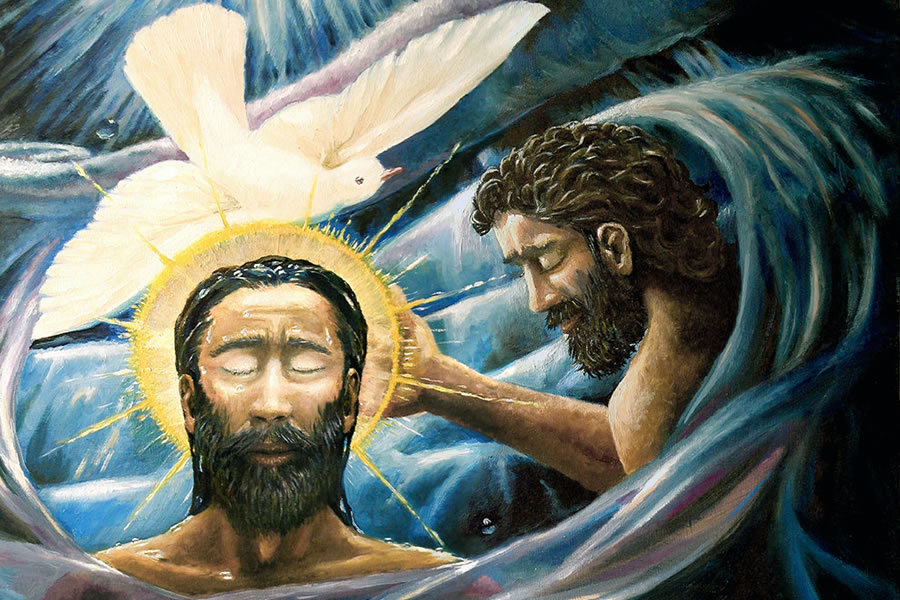
The Baptism of the Lord
01-12-2020Weekly Reflection© 2019 My Catholic Life! Inc.Today’s Feast marks the conclusion of the Christmas Season and the beginning of Ordinary Time. It’s a feast of transition from Jesus’ hidden life to that of His public ministry. It also echoes the theme of the Epiphany in that the Baptism of the Lord is another manifestation announcing Jesus’ divinity to all of His first followers and to the disciples of John the Baptist.
First of all, it needs to be pointed out that Jesus did not need the baptism of John. John was baptizing as a call to and sign of interior repentance. Jesus had no need to repent. But, nonetheless, He comes to John. John resists at first but Jesus insists. Why did He receive baptism?
First, by accepting the baptism of John, Jesus affirms all that John has said and done and affirms his sacred role of preparing the way for Jesus and for a new era of grace. Therefore, the Baptism of Jesus acts as a bridge between the Old Testament prophets (of which John was the last) and the New Testament era of grace and truth.
READ MORE